Menopause is a natural stage of life for women as they age. Understanding all the facts can help you prepare for it, learn what to expect, and determine how to build a network of information and support to guide you through it gracefully.
Quick Links

Menopause is a significant life stage in which a woman’s menstrual cycle and fertility end. It’s a natural process associated with reduced functioning of the ovaries, resulting in decreased reproductive hormones, mainly estrogen and progesterone. Menopause is medically diagnosed when a woman has gone 12 months without a menstrual period.
Menopause typically happens when a woman reaches her 40s or 50s, but there are several distinct stages of menopause that can bring some body changes and symptoms in your thirties and last into your late 50s.
Additionally, it’s important to distinguish between natural and induced menopause. Induced menopause can happen at any age if the ovaries are surgically removed or damaged due to medical reasons. Examples include cancer treatments like pelvic radiation and chemotherapy. Unlike natural menopause, which is gradual, induced menopause is abrupt, and symptoms are often sudden and intense.
There are three stages of natural menopause: Perimenopause, Menopause, and Postmenopause.
Menopause typically occurs between the ages of 40 and 58, with an average age being 52. Although, some women may experience menopause as early as in their 30s or as late as their 60s.
After transitioning from perimenopause to menopause, a woman may experience symptoms for an average of one to seven years, but it's important to remember that menopause is a permanent state. Some symptoms, like hot flashes, tend to be present and then improve, while other symptoms, like vaginal dryness, can be progressive. To help manage symptoms, it’s important to talk to your Moreland OB-GYN as soon as you notice changes, so they can be addressed in the early stages.
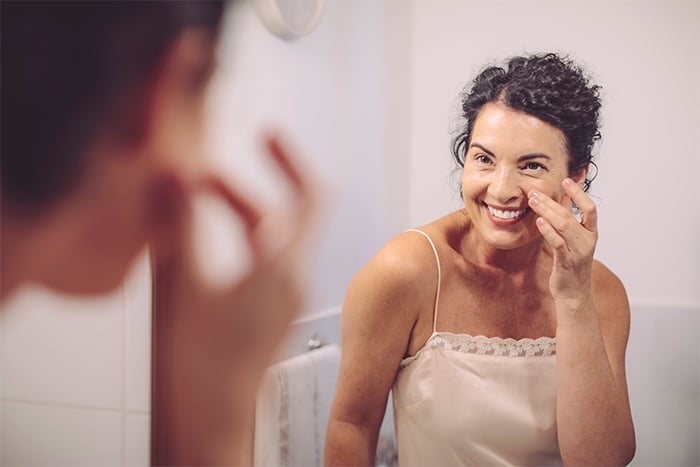
Premature menopause is when a woman experiences menopause before age 40. Unlike natural menopause, premature menopause is considered abnormal. It can result from genetics, autoimmune disorders, or medical procedures. If there is no obvious medical or surgical cause of premature menopause, a woman may be experiencing primary ovarian insufficiency, a condition where a woman’s ovaries stop functioning prematurely.
Health risks associated with premature menopause include an increased risk of osteoporosis and heart disease. Women experiencing premature menopause are also at high risk of depression, anxiety, and psychological distress. Talking to both a gynecologist and psychologist can help a woman cope with the physical and emotional effects of premature menopause.
Are you under 40 years old and think you are experiencing premature menopause? Contact us today to set up an appointment.

Perimenopause is when the amount of estrogen produced by the ovaries begins to decline, usually beginning several years before menopause. During this time, a woman may notice symptoms resembling those related to menopause like hot flashes, mood swings, changes in periods, including heavier or lighter periods and periods lasting shorter or longer than they have in the past, and vaginal dryness. The average length of perimenopause is four years, although some women report this phase lasting for only a few months, while others find it lasts much longer (up to 10 years).
Learn more about the signs of perimenopause and how to alleviate symptoms and get the most out of life as you transition into menopause.
Signs and symptoms of menopause can vary among women, although some of the most common include:
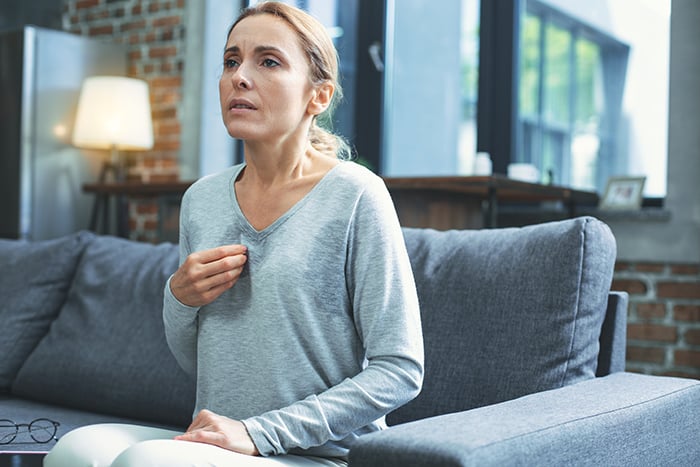
A woman’s body goes through major hormonal changes during menopause, resulting in a number of noticeable body changes.
Hormonal changes associated with menopause include:
Want a better understanding of the main hormones in your body and their functions? Click here to learn more!
Some women develop hypothyroidism during menopause. This is thought to result from the fluctuating estrogen levels, which creates an inflammatory environment ideal for developing autoimmune diseases, such as Hashimoto's disease. It’s also important to know hypothyroidism and perimenopause have very similar symptoms, including an altered menstrual cycle, mood swings, weight gain, and hair loss.
Learn more about your thyroid, thyroid disease, and how you can get tested for hypothyroidism.
Because estrogen helps maintain bone density, the decrease in estrogen that occurs just before and after menopause can result in bone loss and eventually lead to osteoporosis, a disorder in which the bones become weak, brittle, and more likely to break. If you are approaching the perimenopause stage of your life, it’s important to stay on top of your bone health.
Did you know a bone density test is quick and painless? Learn more about osteoporosis and how you can schedule and prepare for your first bone density test!
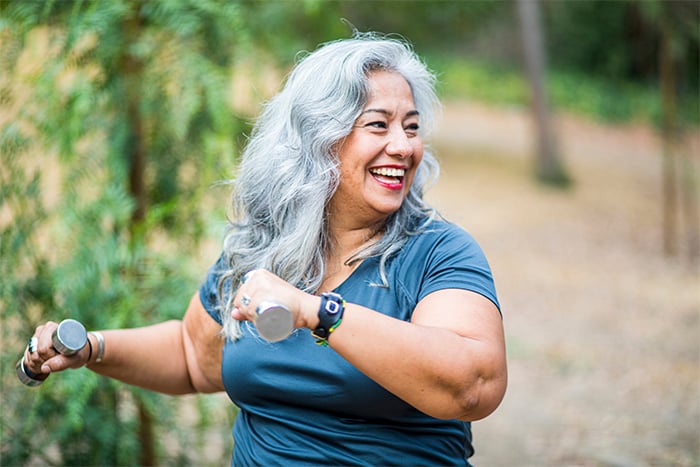
There are many hormonal or non-hormonal treatments that help relieve the symptoms of menopause.
Non-Hormonal options include:
Hormonal options may include the following:

You don’t have to live with the uncomfortable symptoms of menopause. Hot flashes, vaginal dryness, mood fluctuations, sleep difficulties, and weight gain are not simply a part of getting older and something you just have to get used to.
Your provider at Moreland OBGYN can offer you the support you need while making the transition to and through menopause. We’ll evaluate both the physical and emotional effects you are experiencing and work with you to develop the best plan to manage your menopausal health.
Learn more about how you can alleviate menopause symptoms and get the most out of your life after menopause.
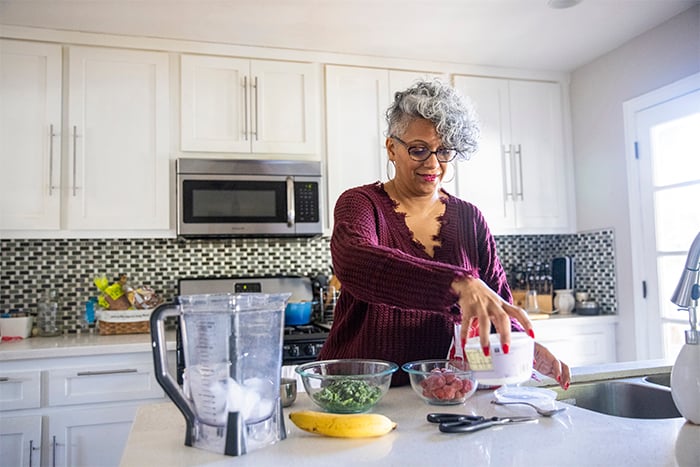
Living an active and healthy lifestyle will be more important than ever as you enter menopause. The following are examples of how certain lifestyle changes can better your health and life while managing menopause symptoms.

Finding a doctor who specializes in menopause is critical. Moreland OB-GYN is committed to being a premier destination for women seeking health care related to menopause.
Moreland OB-GYN has the distinction of having Menopause Practitioners certified by The Menopause Society on staff, dedicated to helping women through this significant change in their life.
All Menopause Society Certified Practitioners (MSCP) must pass a competency examination before getting certified. Our certified providers have proven their knowledge of the stages of menopause, the symptoms of menopause, and the treatments available for women who reach out for help.
Moreland OB-GYN is proud to be a leading women’s healthcare provider, serving outstanding care at our fourteen locations across southeastern Wisconsin. We work with every patient to deliver compassionate patient care focused on shared decision making and an exceptional patient experience.
We hope you'll contact us to answer any of your menopause questions. Our caring team of providers will take the time to listen and supply the resources and information you need to live your best life before, during and after menopause.
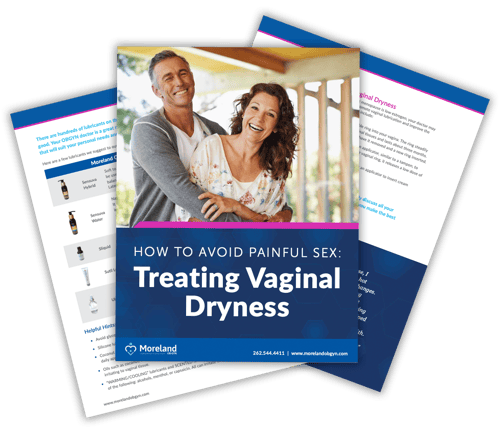
Phone: 262-544-4411
Fax: 262-650-3856
Monday-Thursday:
7:30 am – 6:00 pm
Friday:
7:30 am – 4:00 pm



